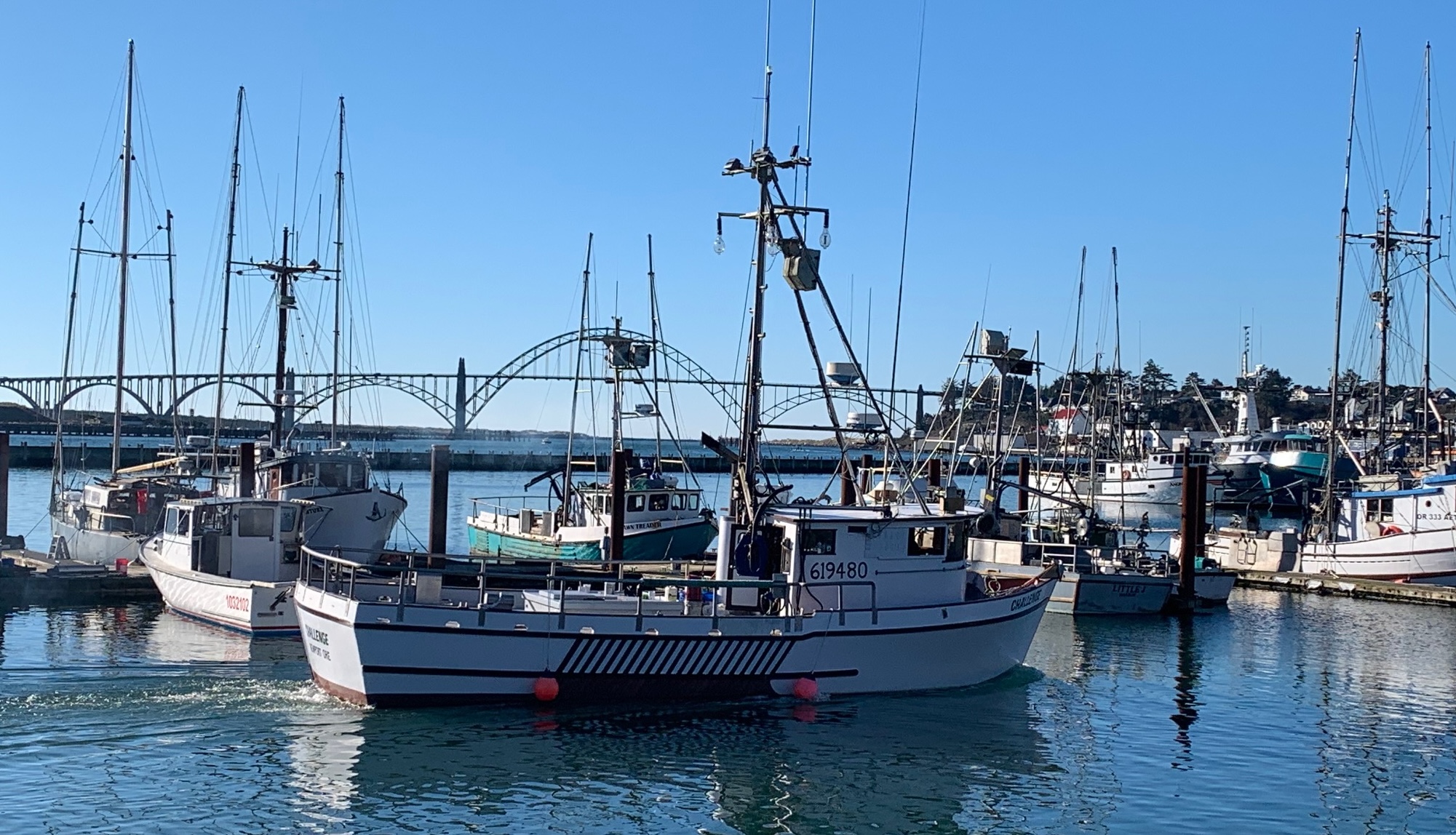
By ALEJANDRO FIGUEROA/Oregon Public Broadcasting
In a regular season, commercial fishing boats on the Oregon coast set out at the beginning of April to catch Pacific pink shrimp to then be canned or frozen at a local processing facility.
This year, those plans got delayed.
“They decided to wait and put it off two weeks at least,” said Nick Edwards, the secretary of the Shrimp Producers Marketing Cooperative, who also commercially fishes Dungeness crab and pink cocktail shrimp.
Processors were waiting, following trade uncertainty after the Trump administration imposed sweeping 10 percent tariffs on all imported goods to the U.S. In response, countries from the European Union — one of the biggest overseas buyers of Oregon pink shrimp — imposed a 25 percent retaliatory tariff on goods from the U.S. The list included cold water shrimp.

Pacific pink shrimp is popular in Scandinavian countries, and is served many ways — from salads to soups and as a garnish on all sorts of dishes
Although the 25 percent tariffs are on pause right now, the market disruption was devastating. European buyers canceled several shipments weeks before the pause was announced, according to Edwards.
In response, Oregon industry and government officials lobbied the U.S. Department of Agriculture to buy the shrimp domestically, to make up for the international losses in early May.
Last week they heard back. The federal government will buy $16 million worth of Oregon pink shrimp.
Lori Steele, the executive director of the West Coast Seafood Processors Association, said that gives struggling fisheries a much needed boost following years of losses — due to restaurant closures after the COVID-19 pandemic — and an oversupply of shrimp.
“We have the ability to catch tens of millions of pounds every year,” Steele said. “But we just haven’t been able to find super solid stable markets to meet that kind of supply.”
The USDA is buying the shrimp through a program meant to stimulate demand during challenging economic times by buying surplus foods. That product is then distributed to schools and food banks.
Steele said the purchase will provide a critical lifeline to Oregon’s fishing communities at a time when the industry expects to see one of its best fishing seasons on record.
“If we didn’t have a market to sell the product, we wouldn’t be able to send the boats out fishing,” Steele said. “There are over 75 boats up and down the coast that depend on this fishery for a good chunk of their year-round income.”
The industry still has a ways to go before it’s stable, Edwards said. Commodity prices for shrimp remain stubbornly low, making labor and boat upkeep challenging as inflation goes up.
“USDA’s investment in our state will help our local economies grow and families make ends meet,” Gov. Tina Kotek said in a statement. “Our businesses need continued stability and predictability from the federal government.”
The industry has also tried to get the United Kingdom to suspend its longtime 20% tariff on imports of U.S. Pacific pink shrimp. That request was recently denied.
“Sixteen million dollars is great, that’s a starter,” Edwards said. “But the real thing that we need to secure is a wide open tariff-free environment into the U.K. That’s in the works, but when that’s going to be signed we don’t know.”
- This story originally appeared May 22, 2025 on Oregon Public Broadcasting.





















Are schools giving away free lunches these days? How many kids eat shrimp cocktails? Or shrimp salads? Nice try but this is not a solution. And down the road DOGE will cancel the contract. (Yeah, DOGE is still around.)
This article is correct. The U.K., and many other countries, have been charging high tariffs on U.S. products for years, yet no one in our federal government ever did anything about it. That is charging now. This will hurt some U.S. businesses for a short time, but now these other countries know what it feels like. Once Trump gets these other countries to make a tariff agreement businesses in America will be much better off.